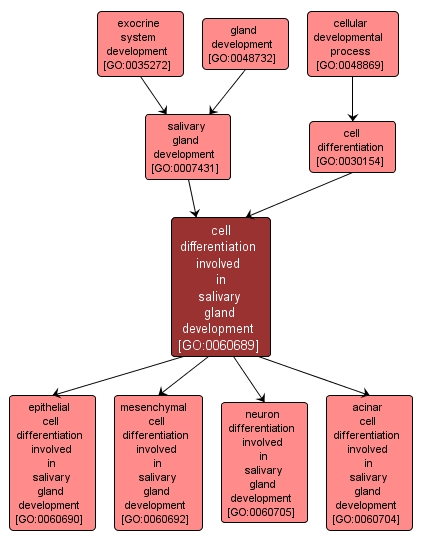GO TERM SUMMARY
|
| Name: |
cell differentiation involved in salivary gland development |
| Acc: |
GO:0060689 |
| Aspect: |
Biological Process |
| Desc: |
The process whereby a relatively unspecialized cell acquires specialized structural and/or functional features that characterize the cells of the salivary gland. |
|

|
INTERACTIVE GO GRAPH
|














